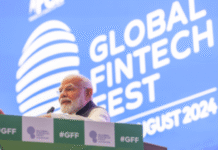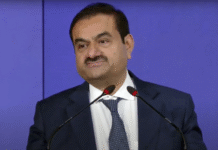Mumbai– India’s current account deficit (CAD) sharply declined to $0.3 billion in the first quarter (April-June) of 2016-17 from $6.1 billion in the same quarter of 2015-16, the Reserve Bank of India (RBI) said on Wednesday.
“The contraction in the CAD was on account of a lower trade deficit ($23.8 billion) in Q1 as against $34.2 billion in the year ago period and $24.8 billion in the preceding (January-March) quarter,” the Reserve Bank of India said in a statement here on the country’s Balance of Payments (BoP) during the first quarter.
The CAD for Q1 accounts for 0.1 per cent of the GDP (Gross Domestic Product) as against 1.2 per cent of the GDP in the same quarter in 2015.
According to the preliminary data on BoP, merchandise imports declined 11.5 per cent vis-A-vis merchandise exports declining 2.1 per cent, leading to a lower trade deficit during the quarter under review (Q1).
“Net services receipts also declined year-on-year (YoY) due to a fall in net earnings on account of travel, financial services and other business services,” the statement noted.
Net payment on account of primary income (dividend, interest and profit), however, marginally increased from its level in 2015.
Remittances by Indians employed overseas declined to $15.2 billion from their level in 2015 and sequentially from the preceding quarter (Q4) of fiscal 2015-16.
Net foreign direct investment (FDI) declined to $4.1 billion from $10 billion last year and $8.8 billion sequentially.
Portfolio investment saw a net inflow of $2.1 billion as against a marginal outflow in the same period last year and $1.5 billion in Q4, reflecting net inflow in equity.
Accretion to non-resident Indian (NRI) deposits at $1.4 billion moderated in Q1 from their level last year and the preceding quarter.
“Higher repayments under external commercial borrowings led to a net outflow under loans to India in Q1 as against net borrowings in the same period last year,” the statement added.
Foreign exchange reserves increased by $7 billion as compared with an accretion of $11.4 billion year ago and $3.3 billion in Q4. (IANS)






